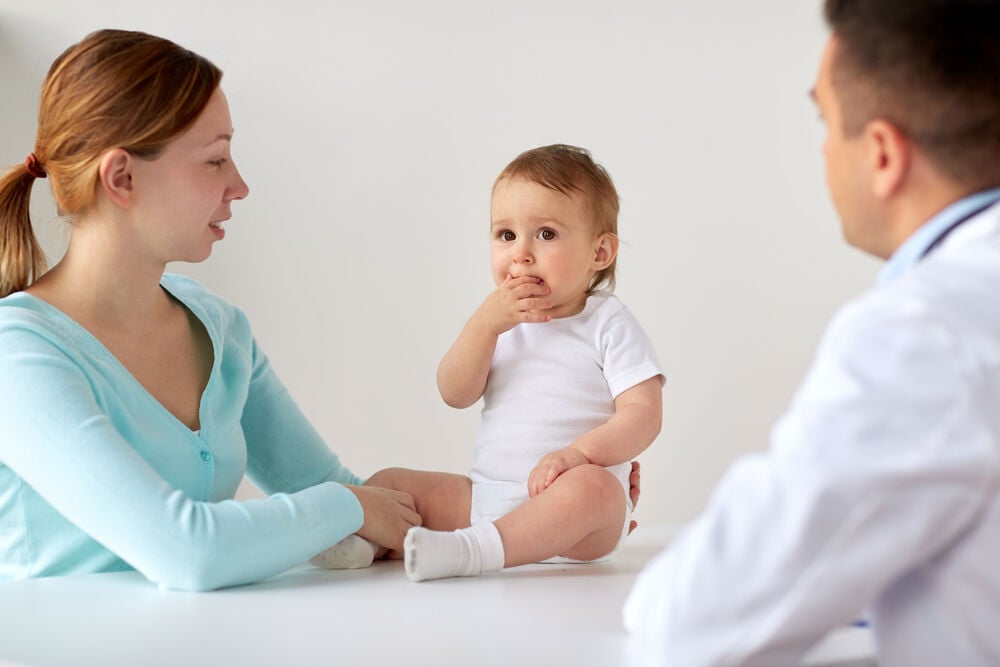-
Tracking cycle
-
Getting pregnant
-
Pregnancy
-
Help Center
-
Flo for Partners
-
Anonymous Mode
-
Flo app reviews
-
Flo Premium New
-
Secret Chats New
-
Symptom Checker New
-
Your cycle
-
Health 360°
-
Getting pregnant
-
Pregnancy
-
Being a mom
-
LGBTQ+
-
Quizzes
-
Ovulation calculator
-
hCG calculator
-
Pregnancy test calculator
-
Menstrual cycle calculator
-
Period calculator
-
Implantation calculator
-
Pregnancy weeks to months calculator
-
Pregnancy due date calculator
-
IVF and FET due date calculator
-
Due date calculator by ultrasound
-
Medical Affairs
-
Science & Research
-
Pass It On Project New
-
Privacy Portal
-
Press Center
-
Flo Accuracy
-
Careers
-
Contact Us
Can Teething Cause Diarrhea? Things to Know If You Are a New Parent


Every piece of content at Flo Health adheres to the highest editorial standards for language, style, and medical accuracy. To learn what we do to deliver the best health and lifestyle insights to you, check out our content review principles.
Why does teething cause diarrhea?
Many parents have reported the occurrence of diarrhea during their baby’s teething period. For that reason, teething has become associated with diarrhea. There is, however, no evidence for a causal relationship between teething and diarrhea.
Parents believed that increased drooling during the teething period causes diarrhea. The idea was that, during the teething period, babies swallowed the excess saliva, which interfered with the gastrointestinal system in a way that caused diarrhea.
However, there’s no scientific evidence to support this claim. It’s more likely that the relationship between teething and diarrhea is indirect. As with other postpartum issues, such as painful sex after delivery and breastfeeding issues, teething diarrhea is a health problem that many parents don’t have enough knowledge about.
There's no doubt the teething period isn't easy for your baby. You may notice them grabbing different objects and chewing on them to try to relieve the pain. Some of these objects may not be clean and may be contaminated with different types of germs.
This unhygienic habit of sticking various objects in the mouth and chewing on them exposes the baby to the risk of bacterial infections that may lead to diarrhea. Combined with the fact that their immune system is not yet fully mature, the baby’s body can’t effectively fight infections. As a result, they’re likely to get diarrhea.
In addition to that, the teething period in many infants usually occurs six to 24 months following birth. In this time, a large portion of infants will begin to exhibit a wide variety of symptoms that may result from different, unrelated diseases. The fact that these symptoms happen at the same time as teething doesn’t necessarily mean they're directly related.
Other potential causes of diarrhea in babies include lactose intolerance and cow’s milk allergy. The main symptoms of lactose intolerance are bloating, loose stool, and passing a lot of gas. If you find the baby is allergic to cow’s milk, avoid using formulas that contain it.
For parents wondering “Can teething cause diarrhea?” these explanations might be unsatisfactory, and that exposes the baby to extreme risk. During the early years, the baby will suffer from infections many times. Whether your child suffers an ear infection or intestinal infection, the constant battle between their body and the disease makes the immune system stronger.
Diarrhea that occurs during teething might actually deflect attention from a real illness. Parents might attribute the loose bowel movements to unhygienic condition and brush off other symptoms as minor. This can turn tragic if other symptoms point to a more serious infection that needs immediate treatment.
Another situation in which parents might easily miss potentially serious symptoms and brush them off as teething diarrhea is when the mother suffers from postpartum depression. Experiencing some anxiety after giving birth is normal, but if it leads to postpartum psychosis, the mother should seek professional help.
How long does diarrhea from teething last?
In addition to wondering, "Does teething cause diarrhea?" you might also be curious to know how long it lasts. If diarrhea occurs during the onset of the teething period, it will take a few days for it to go away after you take the appropriate steps. But if diarrhea doesn't stop after about a week or reoccurs every few weeks, have a doctor examine your baby.

The type of diarrhea that occurs during the teething period causes your baby to be uncomfortable. However, the treatment for it is nonspecific; if diarrhea doesn't disappear after a few days and your child passes stool more than five times in one day, take the following steps.
Call the doctor
Report any persistent diarrhea to your pediatrician so they can determine if an infection is causing the loose bowels and provide treatment. Depending on the results of the tests, the doctor might prescribe medication.
The importance of seeking medication attention for your baby in case of persistent diarrhea cannot be emphasized enough, as failure to do so may lead to dehydration, which can cause more severe health issues for your child.
Improve hygiene
Your baby may experience a lot of gum irritation during the teething process. Some try to relieve the irritation by biting down on their gums or gnawing on whatever objects they can find, including toys and other items within their reach.
For that reason, it’s advisable to keep the baby’s environment as sanitized as possible to prevent them from being infected by bacteria and other parasites that may cause diarrhea.
Modify your baby’s diet
One of the likely causes of your baby’s diarrhea is their diet. Try to improve the child’s diet to see if the symptoms will subside. Begin by increasing your baby’s intake of breast milk or formula milk. Make sure they drink enough fluids to be properly hydrated.
Alternatively, you can feed the child vegetable purees from bananas, carrots, and potatoes. Rice water can be effective as well. You can also remove juices and cow's milk from the child's diet and see if that remedies the diarrhea. After recovery, the baby can go back to drinking these beverages.
Embrace the natural process of teething as a phase of your child's development. If you notice your child having diarrhea in this period, you don't need to be too alarmed as it usually clears up by itself in a few days. However, if the symptoms fail to subside in a week, call a doctor immediately.
Take a quiz
Find out what you can do with our Health Assistant


Hey, I'm Anique
I started using Flo app to track my period and ovulation because we wanted to have a baby.


The Flo app helped me learn about my body and spot ovulation signs during our conception journey.


I vividly
remember the day
that we switched
Flo into
Pregnancy Mode — it was
such a special
moment.
Real stories, real results
Learn how the Flo app became an amazing cheerleader for us on our conception journey.




